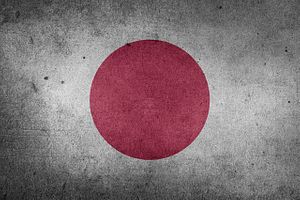Prime Minister Suga Yoshihide’s leadership is being tested after senior bureaucrats from the Ministry of Communications were found to have been treated to a series of lavish meals with executives of satellite broadcasting company Tohokushinsha – which employs Suga’s eldest son, Seigo.
At least 11 senior ministry officials in Suga’s inner circle have been accused of potentially violating the National Public Service Ethics Law, which prohibits receiving favors from stakeholders. An internal investigation revealed that between July 2016 and December 2020, 11 executives from the ministry wined and dined 39 times with Tohokoshinsha executives, who paid up to $700 per head for meals of Wagyu beef and seafood.
Suga’s son is believed to have attended roughly half of the social gatherings even during the coronavirus pandemic. There are also concerns of bribery and corruption after some officials received taxi fares while another allegedly accepted favors worth $1,100.
These opulent gatherings coincided with the renewal of Tohokushinsha’s broadcasting license in December, which is granted by the Ministry of Communications.
On February 24, seven Ministry of Communication officials received pay cuts and warnings as punishment, including Communications Minister Takeda Ryota, who will voluntarily return three months of his pay.
In principle government employees are prohibited from accepting invitations for entertainment such as eating, drinking, golfing, traveling, or playing mahjong with any party applying for or engaged in licenses, grants, or subsidies. But there is also a provision for dining with parties of interest if government officials split the bill or if expenses are paid for by a third party.
The scandal is the latest embarrassment embroiling the Suga administration, which is facing public criticism over its handling of the coronavirus crisis. At a budget committee meeting on February 22 Suga confirmed that his eldest son was involved and apologized for the civil servants who committed acts that violated the ethics law. He denied ever having a conversation with his son about the broadcast company and also said he was “not aware” of the punishment given to his son.
Meanwhile, Tohokushinsha also issued a statement saying “We deeply apologize for the actions of a group of employees who caused ministry staff to violate terms and accept disciplinary punishment.” Tohokushinsha President Ninomiya Kiyotaka announced his resignation on February 26 for attending the opulent dinners with Vice President Nakajima Shinya, who has since been promoted as his successor. Meanwhile, Suga’s son Seigo resigned as director of Igo & Shogi Channel Inc, a subsidiary of Tohokushinsha. The company also vowed to compile a report including procedures for renewing broadcasting licenses.
The former Abe administration had a penchant for bouncing back from political scandals. Abe Shinzo’s almost eight consecutive years in office made him Japan’s longest serving prime minister, but there are concerns that a post-Abe Japan will usher in another era of revolving door leadership. Following Abe’s unexpected resignation as prime minister in August 2020, there were few serious contenders who wanted the top job under such unprecedented economic challenges. Suga took office pledging to continue Abenomics and the “current framework” as new prime minister.
That appears to also mean continuing the ruling party’s favoritism scandals.
Just one month after Suga came into office he faced backlash for refusing to approve six professors to the Science Council of Japan advisory body. To add to the growing pressure, the administration has come under the spotlight after the former minister for Agriculture, Forestry and Fisheries was indicted for being wined and dined as well as accepting money from egg manufacturer Akita Foods between November 2018 and August 2019, part of an effort to lobby for the easing of strict animal ethics standards for the industry.
The Constitutional Democratic Party (CDP) called for the resignation of bureaucrats involved in the scandal. Meanwhile, CDP House of Representatives member Ozawa Ichiro, an influential opposition figure, went one step further by calling for the resignation of the Suga administration. He also denounced the ruling party’s “shameful” habit of using diversionary tactics and arranging the same stories beforehand. Ozawa tweeted on February 21 that “unless members of the administration change, the entire incident would be concealed or falsified.”
































